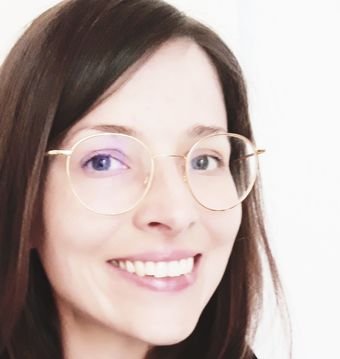Special Events

AS Dissertation Prize Ceremony
Wednesday, September 29
18:00 - 19:30
The Academy of Sociology is proud to highlight an outstanding dissertation submitted in 2019 which contributes to the discipline in terms of originality of research, stringent argumentation, transparency of results, and the scientific and societal (if applicable) impact. The award is endowed with 1,500€. The committee received 15 excellent dissertation theses from 11 universities.
The committee run by Professor Sonja Drobnič (Bremen), Professor Stefanie Kley (Hamburg), Professor Karl-Dieter Opp (Leipzig), and Professor Peter Schmidt (Giessen) evaluated the dissertations submitted to the Academy of Sociology.
This year, Dr. Katrin Paula (TU München) is the winner of our dissertation prize. Her dissertation is about ‘Micro-Dynamics of Mobilization: Evidence from the German Democratic Republic’.
Professor Stefanie Kley (University of Hamburg) will hold the Laudatio.
Prize Lecture: Winner of the 2021 Academy of Sociology Dissertation Prize
'Micro-dynamics of mobilization: evidence from the German Democratic Republic'
At least since the Arab Spring, the question of how mass uprisings develop (re)gained attention among researchers, policymakers and the general public. While there is extensive research on how protests spread transnationally and within democracies, we still know little about their development within autocratic regimes. Mass-mobilization these environments is particularly puzzling because of potentially pervasive surveillance and repression, and limited space for civil society. The dissertation highlights both the role of information access and specific information content. Combining novel, highly disaggregated data on protest events, daily content analyses of news broadcasts, and surveys, the dissertation examines the impact of various information channels, repression, and censorship on the spatial and temporal spread of protests in the German Democratic Republic in 1989. It offers new insights and methods for understanding the dynamics of micro-mobilization that can also sharpen our understanding of recent political unrest in the age of new information technologies.
‘Research Institute Social Cohesion’ presents current research
Thursday, September 30
15:00 - 16:30
With its 11 locations the Research Institute Social Cohesion (RISC) both examines and encompasses the regional diversity of social cohesion within Germany. Since 2020, more than 100 scientists, coming from a wide variety of disciplines, use empirical studies and large-scale comparisons to develop practical recommendations that help meet today’s social challenges.
In this special event, RISC researchers will present theoretical insights and empirical results from their current research. RISC is funded by the Federal Ministry of Education and Research, and official partner of the 2021 AS conference.
Uwe Schimank
University of Bremen/ RISC
'Social Integration: An analytical concept fitting to modern societies'
Based on a rough intuitive first understanding of social integration, I take two steps of further conceptual specification. First, I conceive of social integration as a combination of four basic ingredients (consensus, trust, conformity, and cooperation). Second, not a maximum of each of these ingredients but a balanced middle level is adequate for the social integration of modern societies. However, this theoretically plausible view raises difficult problems of the empirical measurement of social integration.
Data Task Force of the ‘Research Institute Social Cohesion’
Research Institute Social Cohesion
'The German Cohesion Panel: Design and first results from a pilot-study 2020'
In 2021, the ‘Research Institute Social Cohesion’ launched a new panel survey on social cohesion in Germany. In this talk we briefly present the methodological design of this household survey, and we will report first results from a pilot study that was carried out in 2020 as a CAWI/TEL- survey. The sample of the pilot study was based on the German sample of the European Social Survey (ESS) 2016 and their adult household members. A net total of 868 adults were interviewed about a variety of attitudes, experiences and practices of social cohesion. At the center of the survey are socio-cultural cleavages which are understood as threats to social cohesion.
Virtual Wine Meeting
Thursday, September 30
18:30 - 20:30
The Virtual Wine Meeting will take place in our virtual conference launch powered by Gather. This online tool enables personal interactions and conversation between two and more participants.
More Details will be given at the conference.
EXC 2035 Research Cluster of Excellence ‘The Politics of Inequality’ presents current research
Friday, October 01
14:00 - 15:30
‘The Politics of Inequality: Perceptions, Participation and Policies’ is is a joint project of researchers from political science, sociology, economy, linguistics, psychology and education studies from the University of Kontanz, studying the cycle that is formed by the perception of unequally distributed resources, political mobilisation resulting from perceived inequality, the policy measures undertaken to deal with them, and their impact on the underlying distribution of resources. Besides inequality of economic resources (wealth), we are interested in unequally distributed access to information, the effects of education and language, and the effects of group membership with pertaining rights and privileges (or the lack thereof).
In this special event, researchers from University of Konstanz will present insights from their current research. The Cluster of Excellence is part of the framework of the Excellence Strategy of the German federal and state governments.
Thomas Hinz
University of Konstanz
'Research Framework'
Thomas Wöhler
University of Konstanz
'New resources and opportunities of inequality research'
Katrin Schmelz
University of Konstanz
'Responses to Covid-19 policies: compliance, crowding-out and conformism'
Luna Bellani
University of Konstanz
'Information, attitudes and preferences for redistribution - results from the inequality barometer'
Ole Brüggemann
University of Konstanz
'Perceptions of wage inequality in the organizational context'
Gerald Schneider1, Jonas Bornemann1
1University of Konstanz
'Administrative Inequality'